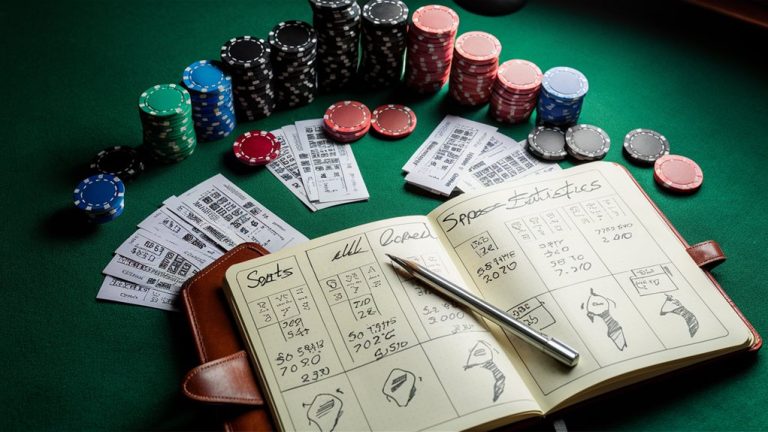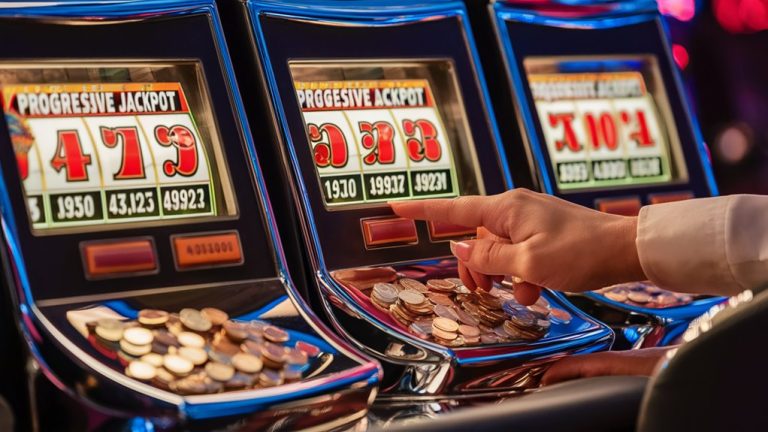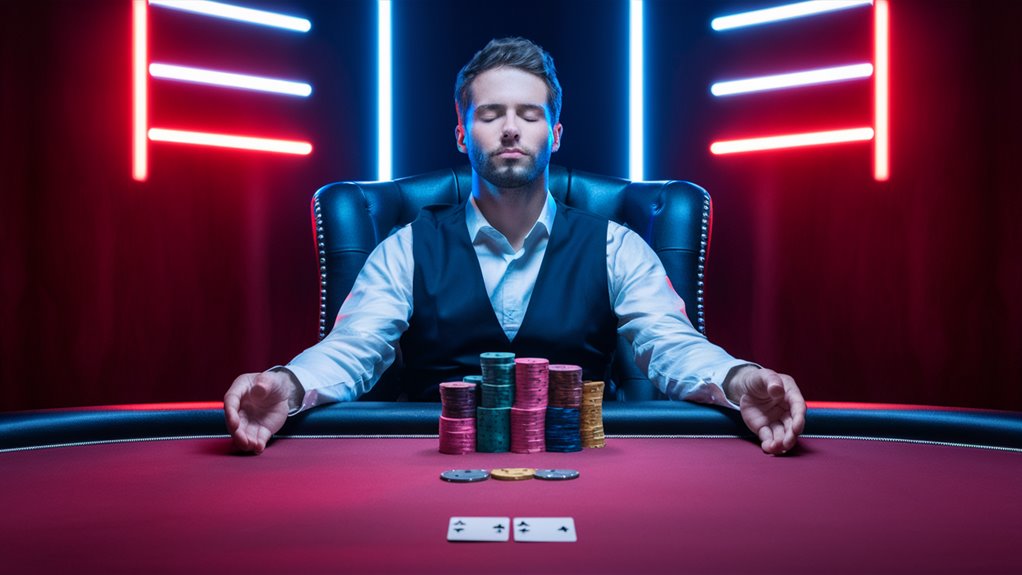
The Meditative Gambler: Tapping Zen for Clearer Bet Decisions
Understanding Mindful Betting Practices
*Mindfulness meditation* and responsible gambling integration creates a powerful framework for enhanced decision-making in betting scenarios. Through structured *daily meditation practices* ranging from 5-20 minutes, bettors develop crucial skills in *emotional regulation* and *pattern recognition* that directly impact wagering outcomes.
Core Meditation Techniques for Better Betting
*Breath awareness* serves as the foundation for maintaining focus during crucial betting moments. Implementing *systematic breath counting* between wagers helps prevent impulsive decisions while promoting analytical thinking. The practice of *body scanning* allows bettors to recognize physical stress signals that might otherwise lead to poor choices.
Zen Principles in Gambling Strategy
Applying *Mushin* (empty mind) and *Shoshin* (beginner’s mind) principles enables bettors to approach each wagering opportunity with renewed perspective. These ancient wisdom traditions support *unbiased analysis* and help identify previously overlooked betting patterns and market inefficiencies.
Advanced Mindfulness Applications
*Open awareness meditation* during gameplay strengthens real-time decision-making capabilities while maintaining emotional equilibrium. This advanced practice helps bettors develop *superior risk management* skills and maintain discipline during both winning and losing streaks.
FAQ: Meditation and Betting
Q: How long should I meditate before placing bets?
A: Start with 5-10 minutes of focused breathing exercises before any betting session.
Q: Can meditation really improve betting outcomes?
A: Research shows meditation enhances decision-making skills and emotional control, both crucial for successful betting.
Q: What’s the best meditation technique for beginners?
A: Simple breath counting is most effective for newcomers to build awareness and focus.
Q: How do I maintain mindfulness during intense betting sessions?
A: Regular check-ins with your breath and body sensations help maintain emotional balance.
Q: When should I incorporate meditation breaks during betting?
A: Take 2-3 minute meditation breaks every hour or after significant wins/losses.
Through consistent application of these *mindfulness principles* and *meditation techniques*, bettors can develop a more measured, strategic approach to gambling while maintaining emotional stability and clear decision-making capabilities.
Understanding Mindfulness in Gambling
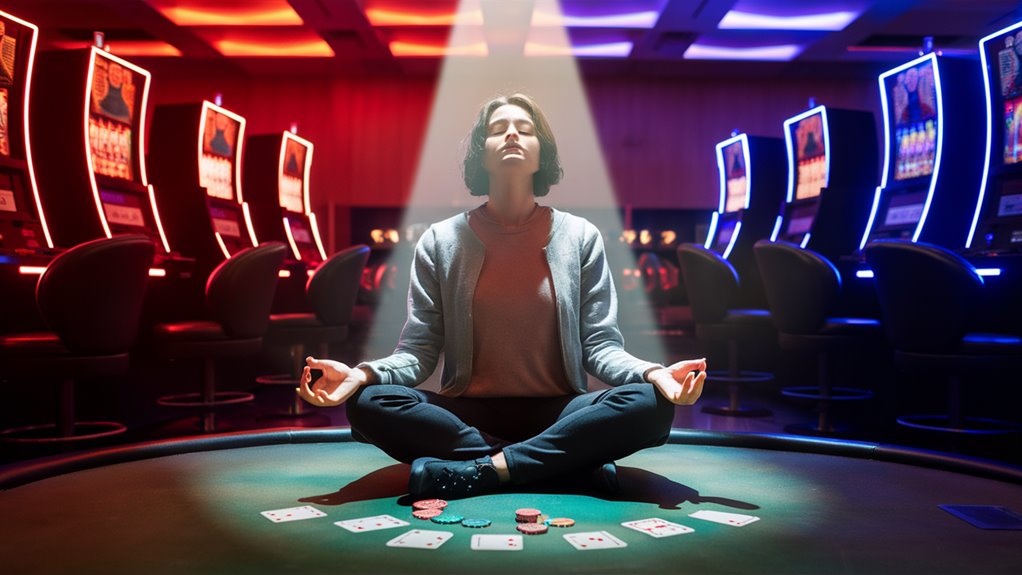
Understanding Mindfulness in Gambling: A Comprehensive Guide
The Core Principles of Mindful Gambling
*Mindfulness in gambling* represents a sophisticated approach to maintaining control and awareness during betting activities.
Through *focused attention* and *emotional equilibrium*, players can develop a heightened consciousness of their decision-making process while gambling.
Key Components of Mindful Gambling Practice
*Present-moment awareness* serves as the foundation for mindful gambling, enabling players to:
- Maintain sharp focus on current betting decisions
- Avoid dwelling on past losses
- Prevent anxiety about future outcomes
Emotional Regulation Strategies
*Emotional regulation* plays a crucial role in *responsible gambling behavior*.
By implementing *mindfulness techniques*, players can:
- Recognize emotional triggers before they impact decisions
- Maintain composure during winning and losing streaks
- Treat each betting decision as an independent event
Advanced Mindfulness Applications
Developing *strategic awareness* through mindfulness helps gamblers:
- Analyze patterns objectively
- Override cognitive biases
- Make decisions based on probability rather than emotion
Frequently Asked Questions
Q: How does mindfulness improve gambling decisions?
A: Mindfulness enhances decision-making by creating mental space between impulses and actions, allowing for more rational choices.
Q: Can mindfulness help prevent problem gambling?
A: Yes, mindful awareness helps identify risky behavior patterns and emotional triggers before they lead to problematic gambling.
Q: What’re the main benefits of mindful gambling?
A: Benefits include improved emotional control, better decision-making, and reduced impulsive betting behavior.
Q: How long does it take to develop mindful gambling habits?
A: Developing mindful gambling practices typically requires consistent practice over several weeks or months.
Q: Is mindfulness effective for all types of gambling?
A: Mindfulness techniques can be applied to any form of gambling, though effectiveness may vary by individual and game type.
Practical Implementation
*Mindful gambling practices* require ongoing commitment and regular application.
Success comes through:
- Consistent practice of awareness techniques
- Regular self-assessment
- Development of emotional resilience
- Implementation of strategic thinking skills
This comprehensive approach to *mindful gambling* creates a foundation for more controlled and conscious betting behavior, ultimately leading to better outcomes and reduced risk of problematic gambling patterns.
Meditation Techniques for Better Focus
*Meditation Techniques for Better Focus*
*Essential Meditation Practices for Mental Clarity*
*Breath Anchor Technique* stands as a fundamental meditation practice for developing laser-sharp focus. This method involves counting breaths sequentially from one to ten before starting over. When attention drifts, practitioners gently redirect their awareness back to the counting process, building crucial mental discipline and concentration skills.
The *Body Scan Meditation* offers a systematic approach to developing heightened awareness. Starting from the toes and moving methodically upward, practitioners observe physical sensations throughout their body with neutral attention. This practice enhances mind-body connection and promotes deep relaxation while strengthening present-moment awareness.
*Open Awareness Meditation* develops the capacity to observe thoughts and emotions objectively. This technique cultivates a stable attention span by allowing mental contents to arise and pass naturally without engagement. Begin with five-minute sessions, gradually extending to 15-20 minutes as concentration improves.
*Advanced Focus-Building Strategies*
*Mindful Walking Meditation* combines physical movement with mental focus. Practice by coordinating breath with each step, maintaining awareness of bodily sensations and environmental elements. This dynamic meditation strengthens concentration while in motion.
*Sound Awareness Practice* enhances focus by using environmental sounds as meditation anchors. Notice sounds without labeling or judgment, helping develop sustained attention and reducing mental distractions.
*Practical Implementation Tips*
- Start with 5-minute sessions
- Practice consistently at the same time daily
- Create a dedicated meditation space
- Use comfortable seating or positioning
- Track progress through a meditation journal
*FAQ: Meditation for Focus*
Q: How long should beginners meditate?
A: Start with 5-10 minutes daily, gradually increasing duration as comfort develops.
Q: What time of day is best for meditation?
A: Early morning often works best, but consistency matters more than timing.
Q: How quickly can one expect results?
A: Notable improvements in focus typically emerge after 2-4 weeks of regular practice.
Q: Can meditation be practiced anywhere?
A: Yes, though a quiet, familiar space is ideal for developing initial practice.
Q: Is guided meditation recommended for beginners?
A: Yes, guided sessions can help establish proper technique and maintain focus.
Emotional Control at the Table
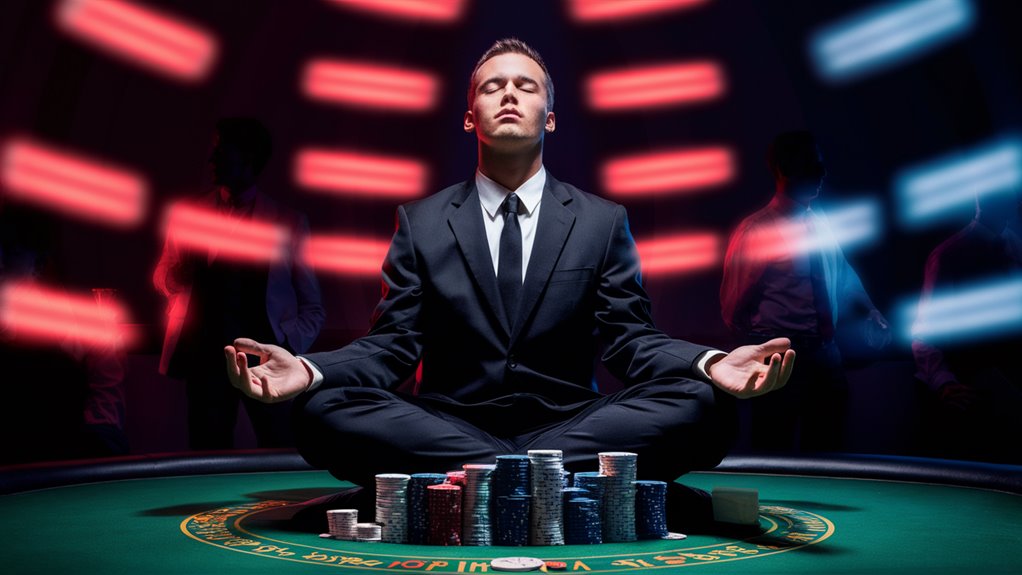
*Mastering Emotional Control in Poker: A Complete Guide*
*Understanding Poker Psychology and Tilt Management*
*Emotional 슬롯사이트 추천 control* represents the cornerstone of successful poker play.
While technical skills matter, maintaining composure during intense sessions often determines long-term profitability. This comprehensive guide explores proven strategies for developing *mental resilience* at the poker table.
*Recognizing Emotional Triggers*
*Physical awareness* serves as your first line of defense against tilt. Monitor these key indicators:
- Elevated heart rate
- Shallow breathing patterns
- Muscle tension, particularly in shoulders
- Clenched jaw or fists
- Racing thoughts
*Implementing Mindfulness Techniques*
*Strategic breathing exercises* help regulate emotional responses during challenging situations. Practice these *proven methods*:
- Take three deep breaths between significant hands
- Focus on steady inhale-exhale patterns
- Ground yourself by feeling the chair beneath you
- Maintain awareness of your body’s position
*Developing Emotional Resilience*
*Building mental toughness* requires consistent practice:
- Label emotions without judgment
- Accept temporary setbacks as part of the game
- Separate results from decision quality
- Treat each hand as an independent event
*Frequently Asked Questions*
Q: How do I prevent tilt after a bad beat?
A: Practice immediate emotional recognition, take deep breaths, and focus on making optimal decisions rather than results.
Q: When should I end a poker session due to emotions?
A: Exit the game if you notice persistent negative thoughts, inability to focus, or increasing aggression in your play.
Q: Can meditation improve poker performance?
A: Yes, regular meditation enhances emotional awareness and develops mental discipline necessary for consistent play.
Q: How do I handle aggressive opponents without tilting?
A: Focus on strategic responses rather than personal reactions, maintaining professional detachment from provocative behavior.
Q: What’re the best exercises for building emotional control?
A: Regular mindfulness practice, breathing exercises, and systematic review of challenging sessions help build emotional resilience.
*Professional Tips for Long-term Success*
- Establish pre-session mental preparation routines
- Set clear stop-loss limits before playing
- Document emotional triggers and responses
- Practice visualization techniques
- Maintain proper physical health through diet and exercise
Remember, *emotional mastery* develops through consistent practice and self-awareness.
Implement these strategies systematically to enhance your poker performance and profitability.
Zen Principles Meet Betting Strategy
*Zen Principles in Modern Betting Strategy*
*Mindful Approach to Betting*
*Strategic betting* requires more than just mathematical calculations – it demands mental clarity and emotional control.
The ancient wisdom of *Zen philosophy* provides powerful tools for modern bettors, offering frameworks for *decision-making* and *psychological resilience* that translate directly to betting success.
*Key Zen Concepts in Betting*
*Mushin* (empty mind) creates the ideal state for *objective analysis* in betting scenarios.
By approaching each situation without preconceptions, bettors can evaluate *odds* and *probabilities* with greater accuracy. This detachment from outcomes allows for *strategic thinking* based on mathematical reality rather than emotional desire.
*Pattern Recognition Through Mindfulness*
*Mindful observation*, a cornerstone of Zen practice, enhances a bettor’s ability to detect *behavioral patterns* and *market trends*.
The concept of *Shoshin* (beginner’s mind) enables bettors to notice subtle indicators that others might overlook, leading to more informed *betting decisions*.
*Bankroll Management and Non-Attachment*
*Emotional control* through *non-attachment* principles directly impacts *bankroll management*. This Zen-inspired approach helps prevent *impulsive betting* and maintains rational decision-making during both winning and losing streaks.
*Frequently Asked Questions*
Q: How does Zen philosophy improve betting decisions?
A: Zen principles enhance emotional control, objective analysis, and clear decision-making in betting scenarios.
Q: What’s Mushin’s role in betting strategy?
A: Mushin (empty mind) enables unbiased evaluation of betting opportunities and removes emotional interference.
Q: How does non-attachment affect bankroll management?
A: Non-attachment helps maintain disciplined betting patterns and prevents emotional reactions to losses.
Q: Can mindfulness improve pattern recognition in betting?
A: Yes, mindful observation enhances awareness of subtle market signals and betting patterns.
Q: What’s the connection between Zen and strategic betting?
A: Zen principles of detachment, presence, and clear thinking align with successful betting strategies.
*Practical Implementation*
Successful bettors integrate these *Zen principles* through regular practice and conscious application.
The goal is to develop a *balanced approach* that combines analytical skills with emotional stability, leading to more consistent *betting performance*.
#
Building Mental Resilience Through Practice

# Building Mental Resilience Through Practice
*Mental resilience* represents a crucial skill developed through *systematic training* and *dedicated practice*.
The combination of *meditation techniques* and *disciplined mindset training* creates a robust framework for maintaining composure under pressure.
Core Training Fundamentals
*Mindfulness practice* serves as the foundation for building *mental resilience*. Begin with *structured 5-minute sessions* focusing on *breath awareness*, gradually progressing to 20-minute intervals.
Through these focused periods, practitioners develop the ability to *observe thought patterns* objectively while maintaining emotional distance.
Advanced Resilience Techniques
*Visualization exercises* strengthen *mental fortitude* by simulating challenging scenarios. Practice maintaining *emotional equilibrium* through both positive and negative outcomes.
Dedicated practitioners who invest just *15 minutes daily* often experience significant improvements in their *decision-making capabilities* and *stress management*.
FAQ: Mental Resilience Training
Q: How long does it take to build mental resilience?
A: Noticeable improvements typically emerge within 4-6 weeks of consistent daily practice.
Q: What’re the key benefits of mental resilience training?
A: Enhanced decision-making, reduced stress, improved emotional regulation, and better focus under pressure.
Q: Can mental resilience be practiced anywhere?
A: Yes, resilience exercises can be performed in any quiet space, making them highly adaptable to various environments.
Q: How often should mental resilience training be practiced?
A: Daily practice of 5-20 minutes yields optimal results, with consistency being more important than duration.
Q: What role does breathing play in mental resilience?
A: Controlled breathing serves as an anchor for awareness and helps regulate emotional responses during challenging situations.
Implementation Strategies
*Progressive training* builds *sustainable resilience* through incremental challenges. Focus on developing *awareness*, *emotional regulation*, and *strategic thinking* skills.
Regular practice 높은 위험 잠재력을 숨기다 creates a robust *mental foundation* applicable across various high-pressure situations.
*Mental resilience training* transcends its immediate applications, fostering improved *decision-making capabilities* and *emotional stability* in all aspects of life.
Through *consistent practice* and *dedicated effort*, practitioners develop lasting mental strength and adaptability.
